Archaeologists, anthropologists and members of the indigenous communities of Guatemala are making an appeal to the Guatemalan government to reject a controversial bill affecting the administration of the country’s archaeological sites. Law 5923, called “Rescue of Pre-Hispanic Heritage,” has been proposed as a matter of national urgency both by the Ministry of Culture and Sports as well as by the majority of deputies of the Guatemalan legislature.
Its opponents, however, say it would have the effect of privatizing Mayan ceremonial centers to benefit a few and would block the access and participation of the Indigneous people in the development of their most important traditional sacred sites, including the ancient city of Tikal.
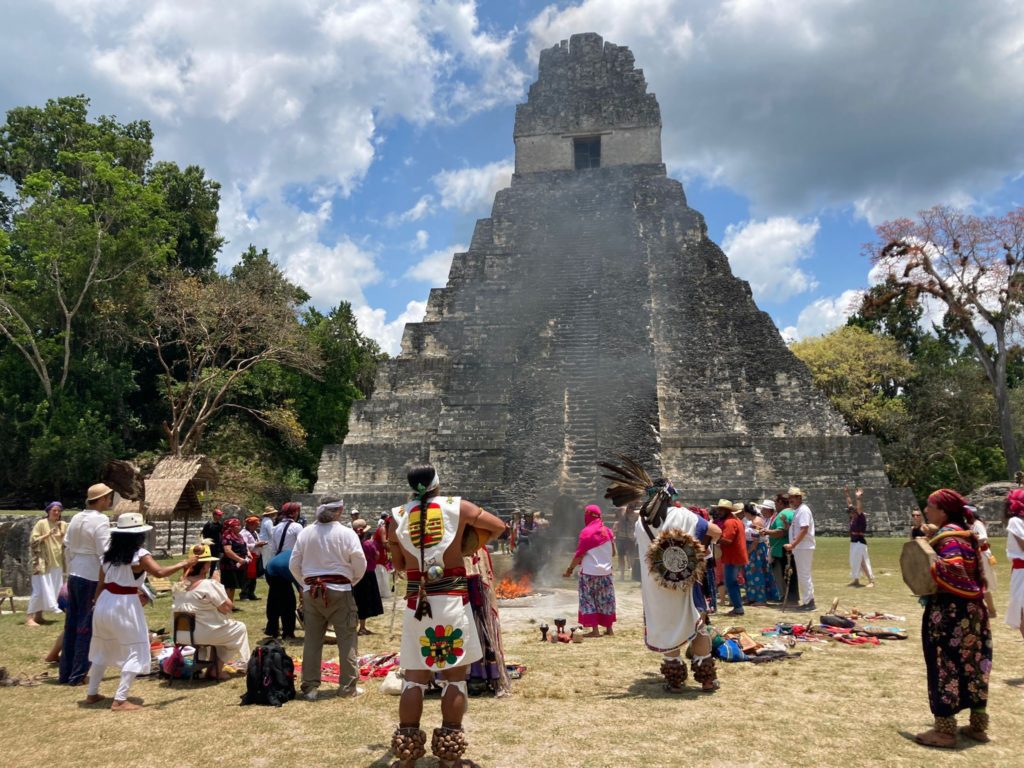
The Esperanza Project sat down with Mayan Ajq’ij or Daykeepers Tat José Baudilio Sis and Nan Amalia Tun, along with Adriana Alvarez of the Four Worlds Institute to hear about their concerns and their work to stop this legislation, which they see as a direct assault on Indigenous rights in violation of international conventions guaranteeing prior free, informed consent on matters relating to Indigenous lands and sacred sites.
We share edited highlights of the interview.
Tat Baudilio, can you start by introducing yourself and telling us a bit about your role in your community and regarding this issue?
Tat Baudilio: My name is José Baudilio Sis. I am the Executive Coordinator of the Ajq’ijab’ Council B’alam Saqb’e and a member of the Ajq’ijab’ Alliance Paxil Kayala. Ajq’ij means one who calculates time from the Mayan worldview. And so part of what we do in the community is to support our people, and interpret life, existence, in a different way. We accompany our people from the language of the Universe, of infinite space. When I talk about that I mean the stars, the planets, Grandfather Sun, Grandmother Moon. Its influence on our existence, on human dynamics, on our health, on our happiness, on our work.
The fight we are waging is due to the fact that despite the many national and international laws that speak of the human rights of Indigenous peoples, in various realities such as our case in Guatemala, they are not respected, valued or implemented as they should be. And that is why the little we have achieved has been based on struggles, demands, based on never letting go.
Right now we have as a topic on the table that is Bill 5923 that talks about the “rescue of pre-Hispanic heritage.” So this and other laws are the ones that we see that violate our rights as indigenous peoples.
The authorities call archaeological sites “ruins.” Conceptually we understand that a ruin is something that is no longer useful, that no longer works, so for us that description is already offensive. It is not fair that they use the word “ruin” to describe the ancient houses of our ancestors. For us it is a relic, it is a treasure that is there.
They also call them pre-Hispanic sites. That is another offense for us, because it is not pre-Hispanic. The Mayans are here, we are alive.
They say that the owners of these sites were all killed, and now they think they can do whatever they want with these sacred treasures, as we call them. They see the archaeological sites more for tourism and we see them more for the sacred practice of energetic and spiritual connection with our existence.
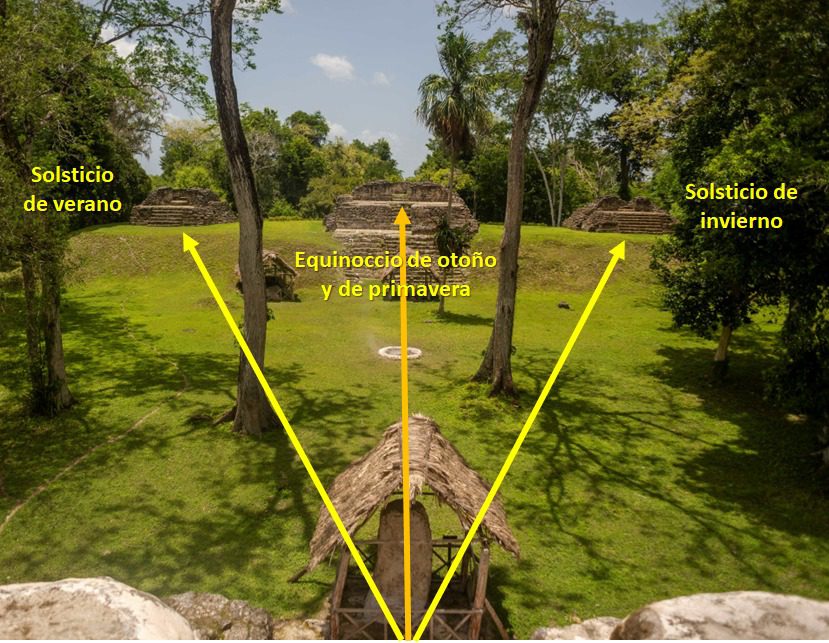
Thank you very much, Tat Baudilio. Now Nana Amalia, if you would like to do the same: introduce yourself and talk a little about your role in her community and also in this struggle.
Nan Amalia: I represent the Elders Council of Ek Balam, together with the alliance that Tat Baudilio represents. And we are in the fight all the time, because of everything that our ancestors have left us, that ancestral legacy that they left us embodied in our sacred sites. For us current Mayans it is resistance, always keeping our culture alive, keeping the sacred fire burning at all times — and at the same time, also keeping that balance alive, that equilibrium with nature, with the cosmos.
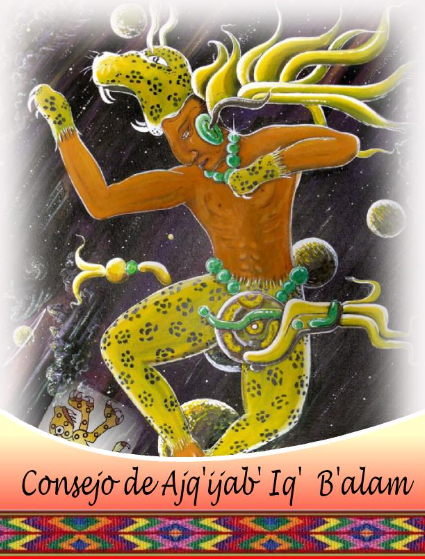
For the State or for the Ministry of Culture, these places are simple recreational centers or archaeological centers that are only for making money, and for tourism. So there they do not look at the energetic-spiritual part. But for us, the Ajq’ij, these are special energetic sites where we go to celebrate our Mayan ceremonies in different ways, where we are going to celebrate our ceremonial offering to the Great Creator, the great creative and formative energies such as Mother Earth and the Cosmos. There lives all the essence of our ancestors.
As Tat Baudilio said, the law initiative that the Ministry of Culture is promoting discriminates against us peoples because it did not take us into account, first because it did not consult the peoples and we do not agree with that proposed law. So that is our struggle today, the rejection of many laws that come to violate the right to nature, the right to life, especially the ancestral practice that our grandmothers and grandfathers have left behind.
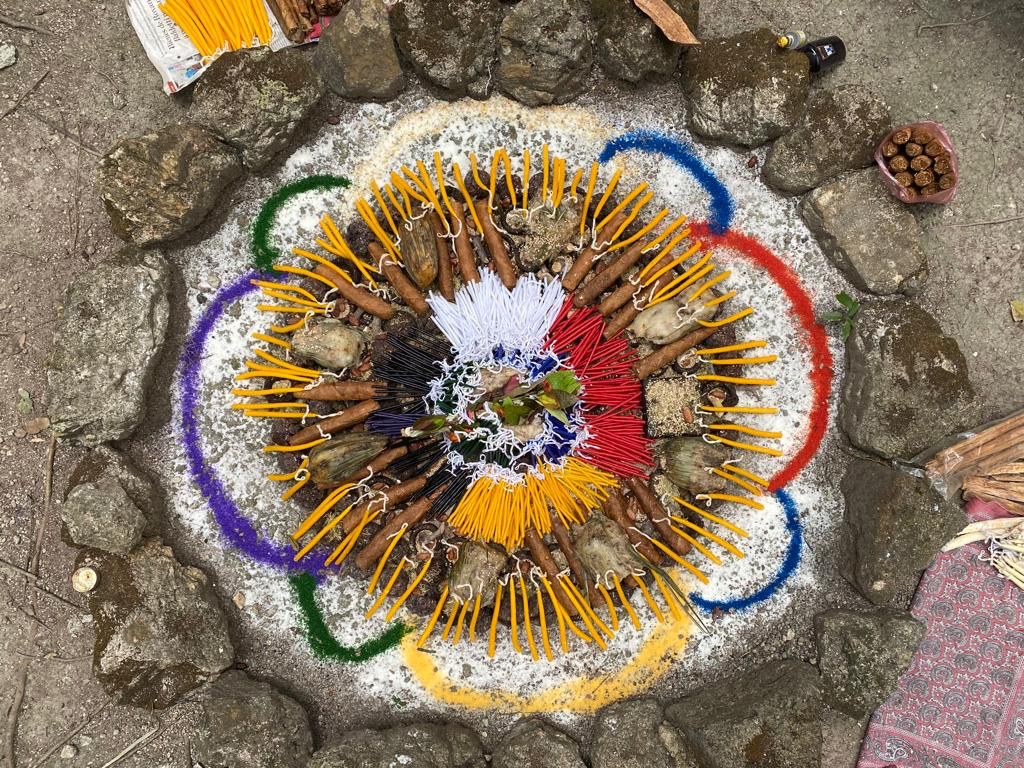
Thank you very much Nana Amalia and Tat Baudilio. It’s a very important moment in terms of what you are talking about, the awakening of cultures, because the world really needs it. Can you tell us a bit about the process you have gone through with this proposal?
Tat Baudilio: This bill passed the first and second readings without the opportunity to be known, much less discussed by the actors with historical rights such as the original peoples, especially the population of the Mayan culture who represent the majority of the Guatemalan population.
On May 11th, the third and last reading was going to take place, when the Ajq’ijab’ — Daykeepers, guardians of the territory and biodiversity, transmitters of ancestral wisdom for the Utzalaj K’aslemalil, or Good Living — we presented ourselves in the Congress of the Republic requesting, in writing and verbally, the rejection of the initiative of Law 5923, “Rescue of Pre-Hispanic Heritage.”
That day, after long hours of petitioning, finally the president of the Board of Directors of the Legislative Organism, Shirley Joanna Rivera Zaldaña, received the representatives of various organized groups of Ajq’ijab’, and she finally swore not to continue with the process of the third reading of the initiative, until a meeting took place to clarify the real purpose of the initiative, which according to her, “the Ajq’ijab’ were unaware of and asserted that they have been misinformed.” Therefore, the president, together with her advisers, proposed that said meeting would be held on Thursday, June 2, starting at 9:00 a.m.
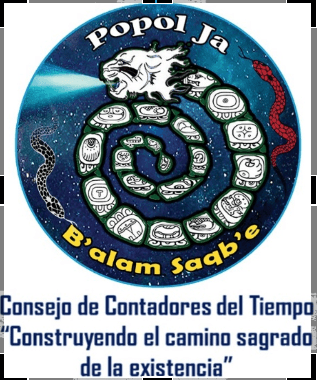
However, two days before June 2nd, the president sent a text message to representatives of the Ajq’ijab’, informing them that the meeting was suspended, because she had another more important commitment. Faced with this attitude, we the Ajq’ijab’ sent a written request, asking that the suspended meeting be resumed on Thursday the 16th from 9 a.m., requesting for this purpose a written response, because in the quality of Ajq’ijab’ as authorities of the original peoples, we need to present evidence of our efforts, but no response was received. Now the representatives of the native peoples have learned that the deputies of the Congress of the Republic have entered their vacation time and will not return until August 15th.

I understand, it must be very frustrating. Now, speaking of this bill, what does it have to do with the American archaeologist Richard Hansen and his tourism megaproject in El Mirador?
Tat Baudilio: It is highly related because it’s one of several projects. There is a binational project that has already been signed between Mexico and Guatemala, which is related to the construction of three dams on the Usumacinta River, the great Usumacinta River that divides the two countries, so building a dam actually touches Mayan territory and Mexican territory.
The government is not waiting for the approval of the Law 5923 initiative, because in the second quarter of this year, it has already inaugurated large projects such as the construction of a “Snail of Time” museum in the Tak’alik Ab’aj archaeological site in the municipality of El Asintal, department of Retalhuleu (project inaugurated for the first time in 2006, reopened in 2012, and inaugurated again on May 14, 2022 by President Giammattei), as well as the inauguration of the restoration of the Archaeological Site of Tayasal, municipality of Flores, department of Petén.
This law would give a free pass, it would be like the door that would be opening so that these megaprojects can be carried out. Specifically, to get an idea, this initiative of Law 5923 is directed fundamentally so that the government can “rescue” these spaces, the archaeological centers, as they call them. What it is about, in the end, is that later the government can award concessions to run these sites. And we already know that the concessions are not going to be won by the communities, nor by the organized groups of the original peoples, but rather they are going to be given to the big companies, and that would automatically mean the privatization of the archaeological centers.
To be specific, they are talking about three places in particular: Tikal, Kiriwá y Ab’aj Tak’alik. From these three, they have already advanced in the inauguration of a project in the southern part of Guatemala, in an archaeological center called Ab’aj Tak’alik, that translated into English is called Standing Rock.
Tak’alik Ab’aj is an ancient archaeological center which has history dating back to the Olmec culture. And they are going to build a big museum there. They already inaugurated the project in May, without the law having been authorized. For this reason, the government proposes this bill as a national emergency. They call it a national emergency because they have already begun to sign the agreements.
So in the southern part is the first project and in the eastern part of the country, in another archaeological center called Kiriwá, this is another point where they want to work. This site connects with the Atlantic Ocean, while Tak’alik Ab’aj is the connection with the Pacific Ocean. To the north is the great city of Tikal —the Tikal archaeological center is the other one where they are already involved in plans to start the execution of projects.
Apparently El Mirador does not appear in this first phase, but as we said, it would be a megaproject that would come later. And the other one that we also know is going to be implemented in Mexico is the “Mayan Train“. The Mayan Train will arrive directly to the north side that would be bordering Guatemala, so we see it as another great threat to our practice and our ancestral wisdom.

What would you say to the argument that developing these sites for public use is good and necessary?
Tat Baudilio: We are not against development. It is a right, and wisdom is a universal right. We want to share it, but they should not exclude us in the elaboration of laws, much less in the benefits that allow sisters and brothers from other countries to come to learn our culture. We want to be guardians of our own territories and manage them between government and traditional authorities.
Nan Amalia: It is good that these sites are being restored, that care be taken with all the money that comes in. Because nowadays you have to pay to enter Tikal for a walk, there is a price for everything, and you even have to go to the bank to pay before entering. So we believe that if there is a fund, there is enough to maintain the place and the entire environment, the trees, and nature to be maintained.
***
Tat Baudilio also commented that in the laws that speak of the management of these sites, it is important to guarantee that all Mayans can have free access to the sacred sites and that it is necessary that the Ajq’ij have the power to enter during hours outside of visiting times to be able to perform their ceremonies without being interrupted by tourists, or to carry out their night ceremonies.
Unfortunately, he comments, there is still a great deal of discrimination and ignorance in society and although there are laws and agreements that guarantee the right of indigenous peoples to carry out their ceremonies without being disturbed, in reality there is still a lot of persecution and violence. In recent years, for example, there have been cases of Mayan elders who have been kidnapped and even burned for being accused of practicing witchcraft.
“That’s why we are criticizing the government,” said Tat Baudilio. “While they profit from the wisdom of our ancestors, from the big houses, which are the archaeological sites of our ancestors, they say a law is needed that is of national urgency. But they don’t talk about national urgency laws to protect our lives.”
That is why Ajq’ijab’ of Paxil Kayalá (Daykeepers from the Mayan Cosmovision of the original peoples), in coordination with Indigenous Mayors, organizations of archaeologists, anthropologists, and other professional networks of the country of Guatemala, joined the solidarity actions of international organizations such as the World Movement “Citizens for Life and Liberty,” the World Movement “Guardians of Life and Peace of Mother Earth,” the Ancestral Council of Abya Yala Unified, among others, and are making an urgent call to the population of any country, profession, industry, to support stopping this and other bills that harm and exclude indigenous peoples.